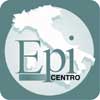Donato Greco - Director of the Laboratory of Epidemiology and Biostatistics
 After 13 years of
silence, the Bollettino Epidemiologico Nazionale (National Epidemiologic
Bulletin; BEN) is returning: a much-anticipated event that responds not only
to requests from our colleagues in the Servizio Sanitario Nazionale (National
Health Service) but also to parliamentary inquiries. The BEN first saw the
light of day in 1980, immediately after the earthquake in Irpinia, and was
issued without fail every week for 7 years.
After 13 years of
silence, the Bollettino Epidemiologico Nazionale (National Epidemiologic
Bulletin; BEN) is returning: a much-anticipated event that responds not only
to requests from our colleagues in the Servizio Sanitario Nazionale (National
Health Service) but also to parliamentary inquiries. The BEN first saw the
light of day in 1980, immediately after the earthquake in Irpinia, and was
issued without fail every week for 7 years.
The new BEN wishes to take up this task again of communicating public health news to health care workers throughout the country. The major objectives of the BEN will be to offer an informational tool to the Regional Health Services that will give priority to contributions from health workers in the field and permit regular publication of the results of surveillance systems coordinated by the Istituto Superiore di Sanità (ISS).
To be able to disseminate results of epidemiologic studies performed by health units and by single districts in a simple and timely way is of great usefulness for the future development of the epidemiologic community, but is even more important for sustaining the enthusiasm that serves as the motivational engine for public health personnel. Particular attention will be paid in the BEN to reporting the results of epidemic investigations of both infectious and non-infectious etiology. Such field studies are unique occasions to learn, occasions no less important than long and costly epidemiologic studies, which sometimes lack relevance for the health care worker at peripheral level.
This new proposal is thus an invitation to our colleagues in the regions and health agencies to share this tool, participating actively through the submission of your experience and comments, not only in the infectious disease arena but also other epidemiologic studies. For this reason, in the first issue, there are two brief notes, one on obesity and overweight in pre-adolescents based on a survey done in the Province of Benevento and the second on antibiotic prescribing behaviors in Italy that is based on a surveillance system coordinated by ISS. The BEN will use the scientific expertise of the Laboratory of Epidemiology and Biostatistics in the ISS as well as that of other Italian and international scholars to assist the editorial staff in ensuring that the articles submitted meet high scientific standards of reliability and accuracy. Furthermore, each article from the field will be accompanied by an editorial note commenting on its contents and placing it in a broader context.
Epidemiologic observatories are now active in many regions of Italy; in others, the Regional Health Agencies have absorbed their functions, and in many Local Health Agencies, there are epidemiologic units, either in Departments of Prevention or the Health Administration, but also in other sectors.
The current situation is far more advanced than 20 years ago. Many regional observatories have and health agencies produce useful periodic publications, and the Minister of Health has an epidemiologic bulletin for infectious diseases (Bollettino Epidemiologico delle Malattie Infettive).
This insert is not meant to compete with any of these documents; it is meant to be simple, and, we hope, rapidly accessible within the Notiziario of the ISS. Furthermore, it is linked to a program for a National Epidemiologic Observatory that was requested by the Minister of Health and was the subject of a resolution passed by the Administrative Council of the ISS in July 1999.
 The BEN is
one of three main components of this program, which is known as Epicentro.
The other two components will include web site for epidemiology in Italy
(which will also be entitled Epicentro) and two-year masters-level training
program in epidemiology, which in two years will produce professional
epidemiologists for the regions and for health units (PROFEA) which also
includes a website for epidemiology in Italy.
The BEN is
one of three main components of this program, which is known as Epicentro.
The other two components will include web site for epidemiology in Italy
(which will also be entitled Epicentro) and two-year masters-level training
program in epidemiology, which in two years will produce professional
epidemiologists for the regions and for health units (PROFEA) which also
includes a website for epidemiology in Italy.
Epicentro is a thus a collaborative effort between the ISS and the regions that will hopefully reinforce the service role of the ISS and provide a common knowledge base for epidemiology in the Italy. We thus expect that our colleagues working in the field will let their voices be heard, reporting in a concise and scientific manner those elements of epidemiology that form an important part of their daily existence.
Therefore, welcome back BEN, with our expectations that this collective effort will thrive long into the future.

 Bollettino epidemiologico nazionale
Bollettino epidemiologico nazionale